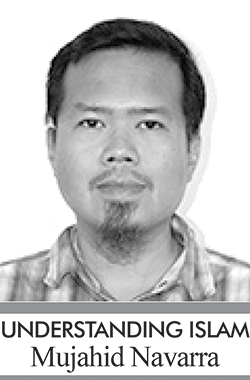
Islam is an all-encompassing religion that it is not only a religion that is practiced inside a place of worship. It is not only a religion that is practiced through prayers and rituals. Islam is a way of life. In everything that humans need to do, Islam has its rules about it. Worship, business, work, politics, personal life, society, and others are all governed by Islamic rulings that are directly mentioned in the Quran and the sayings of Prophet Muhammad or could be deduced from it if direct mention could not be found.
To simplify, a Muslim practices Islam in every part of his or her existence from their childhood, maturity, having careers, old age, dying and being buried – all these have Islamic rules to be obeyed.
Islam has its own form of governance which is according to the Shariah or Islamic law. The Shariah upholds laws that shall protect the religion, life, property, honor, and intellect of human beings whether they are Muslims or Non-Muslims under a Muslim government. This is simple to say in a Muslim majority government but what about here in the Philippines? Is it allowed?
Democracy is known as the rule by the people. Democracy is one of the oldest known forms of government in the world having been invented in Greece 5th century before Christ. Democracy has been defined as the opposite of dictatorship, communism, and totalitarianism. The Philippines has a democratic government in the form of a constitutional republic with a presidential system whose government officials are elected in an election.
As much as possible, it has been disallowed by scholars for Muslims to have any participation in any democratic government except to uphold what Islam upholds, bring benefit and remove harm from the Muslims.
Sheikh Muhammad bin Saleh Al Othaimin was asked about participating in elections and he answered, “I think that elections are obligatory; we should appoint the one who we think is good, because if the good people abstain, who will take their place? Evil people will take their place, or neutral people in whom there is neither good nor evil, but they follow everyone who makes noise. So we have no choice but to choose those who we think are fit.
Sheikh Abdulaziz bin Baz was asked the same question and he replied, “It is not permissible for a Muslim to nominate himself in the hope that he can become part of a system which rules according to something other than that which Allah has revealed and operates according to something other than the Shariah of Islam. It is not permissible for a Muslim to vote for him or for anyone else who will work in that government, unless the one who nominates himself or those who vote for him hope that by getting involved in that they will be able to change the system to one that operates according to the Shariah of Islam, and they are using this as a means to overcome the system of government, provided that the one who nominates himself will not accept any position after being elected except one that does not go against Islamic Shariah.
If someone were to say: We chose someone but most of the parliament are not like that,
We say: It does not matter. If Allah blesses this one person and enables him to speak the truth in this parliament, he will undoubtedly have an effect. But what we need is to be sincere towards Allah and the problem is that we rely too much on physical means and we do not listen to what Allah says. So nominate the one who you think is good, and put your trust in Allah.”
These answers were based on someone of the basic tenets of the Shariah that we shall discuss below:
1. Minority status: Because
of the Filipino Muslims’ minority status in the Philippines, they need to be
represented so that our rights are protected and we are not marginalized or
discriminated against. Being a minority means that the Muslims’ political
priorities should be based on self-preservation.
2. Prevention of
harm: Electing a Muslim government official, if he or she shall be loyal to
Islam and the Muslims, could prevent many forms of evil that might befall the
unrepresented Muslims. During the Marawi siege, for example, it was our Muslim
politicians who facilitated relief operations and established human rights
watch for the Muslim civilians caught in the crossfire.
3. Lesser of two evils: We
must admit that most Muslim politicians shall not be religious anyway and this
is what some people point out to as the reason for the futility of voting in an
election. But in the principle of the lesser of two evils, we would rather have
a sinning Muslim in the government who sympathizes with the Muslims rather than
a career Non-Muslim politician who may not have even have a genuine concern for
the Muslims at all.
4. Advantages and
disadvantages: Having Muslim politicians in key government positions shall have
advantages and there is no doubt about it.
5. Prevention of harm is more important than the acquisition of benefit. We have mentioned that having a politician may have meager benefits at best but in the tenets of the Shariah, having a Muslim politician in key government positions may prevent atrocities, abuses or violations against the rights of Muslims as citizens of this country.
What about Muslim women in politics? Women have been prohibited in Islam to hold key executive government positions such as presidency, governorate or mayoralty. This prohibition is due to the nature of executive positions as brutal in a sense that there is much intrigue or possibly violence in it that women are to be protected from it. However, they may be allowed or could even be encouraged to be part of the legislative branches of the government in order to enact laws that shall be advantageous to women in particular and Muslims in general.



